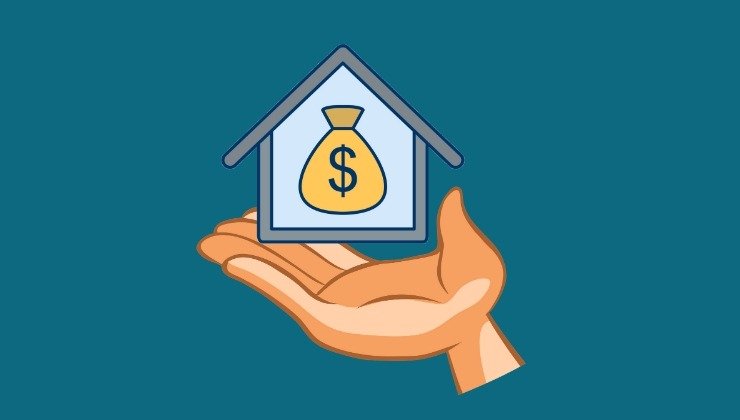
When it comes to buying a home, there are not many shortcuts one can take to speed up the process; everyone must go through the same process of finding an agent, saving up for a down payment, securing a loan and processing all necessary documents before closing the deal to a new house.
The unfortunate truth is, you’ll be spending more than the agreed sale price of a home. This can come as a surprise to some first-time home owners, as there are processing fees and other additional charges that come with the purchase of a house.
If you only planned and saved up enough of a budget for the initial down payment, you may find yourself scrambling to cover these extra expenses at the last minute. To help lower your total expenses, suggesting a seller concession might prove very useful for you.
What is Seller Concession?
In the process of purchasing a house, you will usually be paying closing costs that can range between 2-5% of the home’s market value.
If you find yourself not able to cover these extra costs, you can talk to the seller about the possibility of a “seller concession.”
A seller concession is where the seller can choose to cover some of the closing costs to cut down your out-of-pocket expenses.
One reason a seller might agree to a seller concession is to make a hard-to-sell property more attractive to buyers.
Sellers could also agree to a seller concession of repair costs for damages that were discovered during a home inspection. This is especially likely, since they would legally have to disclose these issues anyway to potential homebuyers in the future.
A common form of seller concession is through the partial payment of loan processing fees, including attorney fees and title insurance, depending on the rules of the lender.
How do Seller Concessions Differ from Price Reduction?
Although they both lead to the same end-goal of lowering the overall price, a seller concession and price reduction are two very different routes you can take.
Think of a seller concession more along the lines of short-term financial relief. A seller concession allows you to save money by getting the seller to cover some of your initial home buying expenses, but you will still be held responsible for the full amount of your home loan.
A price reduction, on the other hand, means that the seller will lower the asking price for the property. You will still be paying for the same processing fees, but you will be saving money in the long run with a smaller loan amount.
Buyer’s markets vs. seller’s markets
A seller concession can be applied to both a buyer and seller’s market, though it doesn’t offer quite the same results.
In a buyer’s market, there are more houses available for purchase than there are interested buyers. This means that a lot of sellers are willing to offer a seller’s concession in order to close a deal on the property.
In comparison, a seller’s market is the complete opposite. In a seller’s market, there are more interested buyers than there are houses available.
In this case, it is not in your favor to ask for a seller’s concession, as there are plenty of people willing to pay full price for the house; your request for a lower price will almost definitely be ignored in the flood of competitive bids.
Due to these varying factors, it is best to work with an agent who knows the current state of the market.
A good agent will be following the most up-to-date real estate data for your area and will help you make the right decisions when approaching sellers.
What Fees can Seller Concessions Cover?
In general, a lender can allow a seller to shoulder some of these expenses if your loan is financing a primary home:
- Title insurance
- Property taxes
- Lender origination fee
- Attorney fees
- Appraisal
- Inspection fees
- Credit report fees
- Discount points
However, there are limitations to how much of these costs a seller can pay. Be sure to ask your lender on how much you can get in seller concessions.
As soon as you find the right property to make an offer on, be sure to include your request for a seller’s concession in the initial sale contract.
When should you Request a Seller Concession?
You can generally ask for a seller concession anytime, but it is in these following scenarios that it makes the most sense:
- The property inspection report reveals that there are many areas on the property that need significant improvements or repairs.
- The property has been on the market for a long time and the seller is having a hard time selling it.
- The appraisal is a lower value than the asking price of the property.
- The buyer only has enough funds for a down payment and will not be able to buy the home without assistance.
Take the time to analyze your situation first and see what makes the most sense; continue to work with your real estate agent and do your own research as to whether a seller’s concession would work in your favor.
If you’re buying during a seller’s market, for instance, you could risk losing a property to more competitive offers.
How to Ask and Negotiate a Seller Concession?
There are two instances where you can start a conversation about requesting a seller concession.
Your first attempt can be at the time of the initial offer, where you would include the request for seller concession as an additional clause.
You can also include it as part of your re-negotiations, although you need to be careful to include this before the inspection period expires. Otherwise, you’ll put your escrow at risk if the seller declines the offer.
No matter which time you choose to request a seller concession, it’s important to make the offer as appealing as possible for a positive outcome.
If you’re working with a real estate agent, be sure to ask for advice about the strategic timing of your request.
Benefits of Seller Concessions
A seller concession is beneficial if you’re trying to keep your out-of-pocket costs as low as possible.
If you get the seller to shoulder some of the processing fees related to your loan or some of the repair costs, you can use those savings to pay for other expenses related to buying the property.
You also have the opportunity to make a higher offer while keeping closing costs manageable, making yours a more attractive offer to the seller.
Drawbacks of Seller Concessions
Although a seller concession is a smart way to save money when buying a home, there are instances when getting one may actually prove to be a disadvantage.
For instance, as mentioned before, you could lose that deal to someone else if you are currently in a seller’s market.
Also, if you have ample cash in hand to pay for the closing costs, price reduction will give you larger savings in the long run.
With price reduction, your total mortgage amount reduces along with the interest that you will end up paying over the loan period.
Always make sure to examine the details closely with your agent and lender, as well as on your own, before getting into any legally-binding deals.
Conclusion
At the end of the day, the decision to ask for a seller concession will depend on the market that you’re in, your individual situation, and the funds that you have saved and prepared for buying a home.
With a good understanding of seller concession, you are now one step closer to getting the house of your dreams and saving money while you’re at it!



